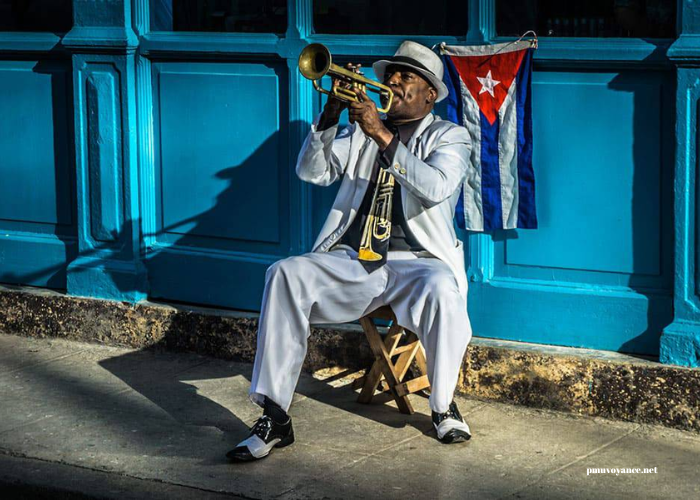Music is one of the most profound forms of expression in human history. It has the ability to transcend language barriers, unify people across diverse cultures, and evoke deep emotional responses. From ancient times to the modern day, music has played a crucial role in shaping societies, fostering connections, and reflecting the human experience. The power of music in society cannot be understated, as it influences our emotions, identities, and collective consciousness. This article delves into the cultural impact of music, exploring its role in social movements, its capacity to shape identities, its power to unite people, and its influence on the economy, politics, and education.
Music as a Cultural and Historical Reflection
Music has always been more than just entertainment; it is a reflection of culture and history. It serves as a lens through which we can understand the past and present social dynamics of societies. For instance, in ancient civilizations such as Egypt, Mesopotamia, and Greece, music was an integral part of religious rituals, festivals, and daily life. The rhythms and melodies of these cultures were intertwined with their spiritual practices, symbolizing cosmic harmony and divine order.
Fast forward to more recent history, and we see music as a key aspect of political movements and revolutions. For example, during the Civil Rights Movement in the United States, songs like “We Shall Overcome” became anthems for social justice, embodying the struggles and hopes of African Americans in their fight against racial oppression. Music not only documented the emotions of the time but also galvanized the masses, creating a sense of unity and purpose.
In contemporary times, genres such as hip-hop, punk rock, and folk music have served as platforms for resistance and rebellion, voicing the discontent of marginalized groups. From Bob Dylan’s anti-war songs to Kendrick Lamar’s commentary on racial inequality, music often speaks for those who feel unheard, challenging the status quo and igniting social change.
Music and Identity Formation
Music plays a pivotal role in the formation of personal and collective identities. It is often through musical preferences and affiliations that individuals express who they are and what they stand for. In youth culture, for instance, music is often the foundation of subcultures. From the punk movement of the 1970s to the rave culture of the 1990s, specific genres of music have shaped entire generations’ fashion, attitudes, and lifestyles.
For many, music is a way to affirm their belonging to a particular social group or to express their individuality. It becomes a form of self-identification and self-expression. Teenagers, for instance, may gravitate towards certain types of music to define their sense of self and to connect with peers who share similar tastes. Whether it’s the rebellious energy of rock or the emotive depth of classical music, the genre someone identifies with often reflects their inner emotional world.
Furthermore, music can also serve as a means for ethnic and cultural identity preservation. For example, folk music plays a crucial role in keeping cultural traditions alive, particularly in indigenous and immigrant communities. African drumming, Irish folk ballads, and Native American chanting, for instance, are powerful symbols of cultural continuity, helping to keep traditional values and stories alive through the generations.
The Unifying Power of Music
One of the most powerful attributes of music is its ability to unite people, regardless of cultural or geographical divides. Music can transcend linguistic, racial, and socio-economic barriers, creating a shared experience that brings individuals together in a collective understanding. Music festivals, for instance, provide a space where people from diverse backgrounds gather to celebrate a common passion. Events like Woodstock in 1969, the Glastonbury Festival, or the more recent Coachella have become cultural phenomena, uniting thousands through the shared love of music.
Additionally, music often plays a significant role in national unity and pride. National anthems, for instance, are a powerful form of collective identity, uniting citizens in moments of celebration or remembrance. At sports events, political rallies, and national holidays, the playing of an anthem evokes a sense of pride, belonging, and unity among the people.
Music’s unifying power extends even further when we consider its use in humanitarian efforts. Iconic global concerts such as Live Aid (1985) and the more recent Global Citizen concerts have demonstrated the capacity of music to raise awareness and funds for global causes. By bringing together some of the world’s most famous artists and a massive audience, these concerts have created a global sense of responsibility and solidarity towards social issues such as poverty, climate change, and human rights.
Music’s Influence on Emotions and Mental Health
Music is unique in its ability to evoke a wide range of emotions. Whether it’s joy, sadness, nostalgia, or exhilaration, music can tap into our emotional core and significantly influence our mental state. Psychologically, music is known to release dopamine in the brain, the neurotransmitter associated with pleasure and reward. This explains why listening to a favorite song can instantly lift our mood or provide comfort during difficult times.
Music therapy has become a well-established form of treatment for various psychological conditions. Research has shown that music can reduce stress, alleviate depression, and even improve cognitive function. Patients suffering from conditions such as Alzheimer’s or PTSD often respond positively to music therapy, as it helps stimulate memory and emotional regulation. The calming effects of certain types of music, such as classical or ambient, have been found to reduce anxiety and improve sleep quality, making music a valuable tool in mental health care.
Furthermore, the creation and performance of music itself can be a therapeutic outlet. Musicians often describe the process of songwriting or playing an instrument as a form of emotional release. This creative expression allows individuals to process complex emotions, providing a sense of catharsis and healing.
Music in Political and Social Movements
Throughout history, music has been an essential tool in political and social movements, serving both as a rallying cry and as a method of protest. During times of unrest, music has provided a platform for marginalized voices to be heard, becoming a key element of social change.
In the 1960s and 1970s, for example, music was at the forefront of the anti-Vietnam War protests. Songs like John Lennon’s “Give Peace a Chance” and Edwin Starr’s “War” became anthems for a generation opposed to conflict. Similarly, the anti-apartheid movement in South Africa saw musicians like Miriam Makeba and Hugh Masekela use their art to raise awareness and bring international attention to the atrocities happening in their country.
Hip-hop, in particular, has been a powerful vehicle for social commentary, especially in addressing racial inequality, police brutality, and systemic oppression. Artists like Public Enemy, Tupac Shakur, and Kendrick Lamar have used their platform to highlight the struggles of black communities, bringing attention to issues that are often overlooked by mainstream media. Their music serves as a form of resistance, challenging societal norms and sparking important conversations about race and justice.
Music and the Economy
The music industry is not only a cultural force but also a significant driver of the global economy. In 2022, the global music market generated over $26 billion in revenue, with streaming services contributing to a substantial portion of this growth. Platforms like Spotify, Apple Music, and YouTube have revolutionized the way we consume music, making it more accessible than ever before.
Concerts and live performances are another major economic force. Large-scale events such as tours by global artists like Beyoncé or Coldplay generate millions of dollars in ticket sales, merchandise, and associated travel and hospitality industries. In addition, music festivals have become a major tourism attraction, drawing attendees from around the world and boosting local economies.
The music industry also creates a wide range of job opportunities, from production and engineering to marketing and management. With the rise of digital platforms, independent artists have more opportunities to produce, distribute, and monetize their work without the need for traditional record labels. This democratization of music production has led to a more diverse and vibrant music landscape, providing economic opportunities for artists and creators worldwide.
Music in Education
Music education plays a crucial role in the development of cognitive and social skills. Numerous studies have shown that learning to play an instrument or engage with music in other ways can enhance a child’s cognitive abilities, improve memory, and boost creativity. Schools that incorporate music programs often see improvements in students’ academic performance, particularly in subjects like mathematics and reading.
Moreover, music education fosters emotional intelligence and social cohesion. Playing in an orchestra or singing in a choir teaches collaboration, patience, and discipline. It also helps build self-esteem and provides a sense of accomplishment. For many students, music serves as a vital outlet for self-expression, helping them navigate the challenges of adolescence.
Music education also plays a significant role in preserving cultural heritage. By teaching traditional forms of music, educators can instill a sense of cultural pride and continuity in younger generations, ensuring that important cultural practices are passed down and maintained.
Conclusion: The Power of Music in Society
Music is a universal language that has the power to evoke emotion, shape identity, foster unity, and drive social change. Its cultural impact is immense, reflecting the values, struggles, and hopes of societies throughout history. Whether it’s serving as the soundtrack to political movements, providing an outlet for personal expression, or generating economic opportunities, music plays a central role in shaping the human experience.
In a rapidly changing world, music remains a constant—a force that can bridge divides, heal wounds, and inspire action. Its ability to connect individuals across cultural and geographical boundaries makes it one of the most powerful tools for creating a more empathetic, united, and just society. As we continue to evolve, music will undoubtedly remain a key component of how we express, understand, and shape our collective identity.


